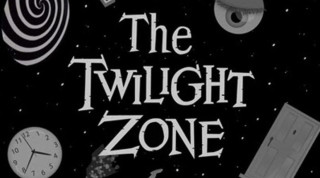As Serling began to develop feature-length scripts, it was his signature to present society with alternative futures that seemed plausible in light of modern inventions and anxieties. In 1968, nearly ten years after his conversation with Champion, Serling submitted a script for 20th Century Fox’s Planet of the Apes that offered several changes to Pierre Boulle’s original novel, the most significant being the ending: Charlton Heston’s character, who believes—and attempts to convince his simian captors—that he is from a different planet, finally realizes that he has never left Earth, which has only been transformed by time. Falling to his knees before a ruined Statue of Liberty, waves lapping against the shore of an otherwise idyllic beach, Taylor cries out to the heavens—a moment etched into the history of cinema. Despite the visual flair boasted by Rise of the…, Dawn of the…, War for the…, and Kingdom of the Planet of the Apes, there is no moment in any of these films which manages to capture the singular horror of Serling’s ending. Within the final reveal of both “I Shot an Arrow Into the Air” and Planet of the Apes is the true horror that the dystopia we most fear is just over the nearest ridge, out of frame but well within the borders of our knowable world.
In an early draft of a teleplay Serling wrote for Playhouse 90, “A Town Has Turned to Dust,” the main character, a classic Serling everyman, builds a chemical plant that produces a fine dust, the inhalation of which makes so-called “mortal enemies'' forget their own hatred. Eventually, the protagonist dies in an accident at the plant, but he succeeds in proving to his community that this idea, worth dying for, is more important than any petty squabbles. The broad strokes of the story gesture toward the high-concept rendering of societal conflict that would characterize later Twilight Zone episodes; the original script, which Serling had written after the horrific lynching of Emmett Till, served as a more direct allegory for racial hatred. However, it would languish for years in developmental purgatory after facing backlash from CBS’s corporate censors. Where the earlier version offered a softer rumination on those who hope to better society, its final form was more pessimistic; suddenly, what was subtextual became overt.
